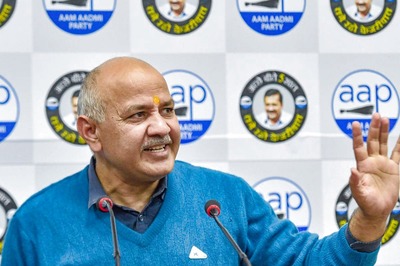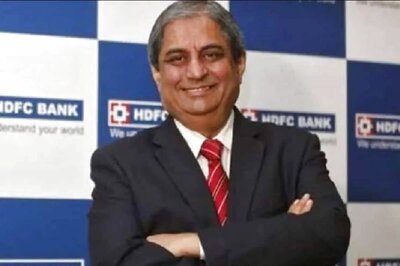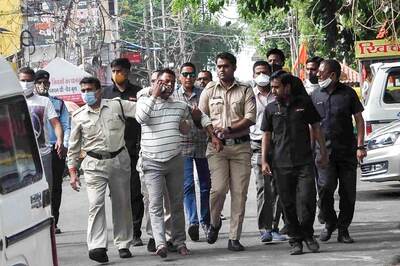
views
Across continents, every year, October 10 is observed as World Mental Health Day, with the goal to raise awareness about mental health and illness. Like elsewhere, in India too, it is a common phenomenon to witness awareness campaigns, seminars and lectures on mental well-being, during the week preceding this day. But what is the true impact of such campaigns in our country where every seventh person suffers from one or other kind of mental disorder? What is the context in which these campaigns operate? Are they successful in influencing the help-seeking tendency of people suffering from mental illness? Are they able to bust the myths and misconceptions around mental health?
I will address the issues one by one, though I believe it is necessary to first spell out the context.
This year’s theme for mental health, announced by the World Federation for Mental Health (WFMH), is ‘Make mental health for all a global priority’. This theme aligns with ensuring healthy lives and promoting well-being for all at all ages, one of the sustainable development goals set by the United Nations. The theme points to some key elements that need to be addressed in our current approach to mental health. The first element is perhaps that of ‘priority.’
There is an urgent need for mental health to become an integral part of the conversation on global policy. The United Nations reported a 25% increase in the prevalence of anxiety and depression worldwide as of 2020.
For India, the statistics look much worse. The National Mental Health Survey 2016 found that 14% of India’s population is in need of mental health interventions. Every year, 1,00,000 people take their own lives in our country. A Lancet study from 2020 found that 1 in every 7 Indians suffers from mental disorders.
Furthermore, a report by the World Health Organization (WHO) revealed that India accounts for 15% of the world’s mental, neurological and substance abuse illness burden. This isn’t all.
The WHO report also states that to meet the mental health crisis that ensues upon this country of 1.3 billion people, we only have 4,000 mental health professionals. Furthermore, the ‘treatment gap’, which refers to the prevalence of mental health disorders and the proportion of individuals who receive treatment, is no less than 70%.
This context is an extreme one, and thus demands some extreme measures on a policy level. To make the matter of mental health a priority is a matter of utmost urgency.
Another element of the theme chosen by WFMH points to the concern of inclusion. It is high time we understood that mental health is not just a phenomenon applicable to those who can afford access to it. It must not be limited to only the privileged, western, upper-class and/or upper-caste. One’s social standing should not be the determining factor of their access to treatment. Mental healthcare is a basic human right.
From a policy point of view, the Government of India attempted to reform the current mental health crisis through the Mental Healthcare Act of India, 2017. While the Act hopes to make mental healthcare more accessible, it places more power in the hands of private establishments, thereby making admission to care facilities costlier. Furthermore, it also strips away the autonomy of a patient by offering the provision to choose a Nominated Representative (NR) from the family. The NR has the power to take decisions on behalf of the patient. Often, patients may come from families where mental illness is a taboo. The NR caveat also discriminates against patients with no families.
Some actionable solutions for the ongoing crisis could be to target the problem at a micro rather than a macro level. If we move one village, one district and one region at a time, testing and validating models that work, and eliminating ones that don’t, we could arrive at quality-oriented solutions, rather than quantity-oriented ones.
Engaging trusted family members and friends of the patient in the recovery process can help accelerate healing, and also reduce the burden on the therapist. This can allow them to have greater bandwidth to tend to more patients and with greater efficiency, thereby accommodating a larger population that receives care. Training Self-Help groups, farmers’ clubs, etc. with basic mental healthcare skills such as Psychological First Aid can allow for a culture of communal mental well-being. India’s great numbers can seem like a weakness, but with a flipped narrative, our numbers can prove to be our greatest strength.
Prof of Eminence (Dr.) Sanjeev P. Sahni is the founder and Principal Director of Jindal Institute of Behavioural Sciences (JIBS). He is currently also the Vice President of World Society of Victimology (WSV). The views expressed in this article are those of the author and do not represent the stand of this publication.
Read all the Latest Opinion News and Breaking News here




















Comments
0 comment